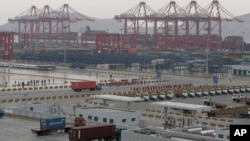U.S. Assistant Secretary of State for East Asian and Pacific Affairs Kurt Campbell recently testified before the House Committee on Foreign Affairs Subcommittee on Asia and the Pacific on America's role in the region.
"Asian nations are vital to the life-blood of the global economy," Assistant Secretary Campbell said. "It is clear that America’s success in the 21st century is tied to the success of the dynamic Asia-Pacific region."
Many critical issues we face today -- military competition, nuclear proliferation, violent extremism, financial crises, poverty, weak and ineffective governments, territorial disputes, competition over natural resources, deadly contagious diseases, and climate change -– all transcend national borders, pose common risks, and demand collective action. "[I]t is critical for the United States to work with our allies and partners in the region to address and meet these significant challenges," Assistant Secretary Campbell said. He went on to state the Obama Administration's five-part framework for engagement in the Asia-Pacific:
First, deepen and modernize United States' alliances with Japan, the Republic of Korea, Australia, Thailand and the Philippines. These security alliances have underwritten peace and stability for over a half-century and continue to provide a context for the region’s economic growth and vitality.
Second, broaden engagement with increasingly important regional partners for the United States, such as Indonesia, Vietnam, Mongolia, New Zealand, Singapore, Malaysia, and India.
Third, develop a predictable, stable, and comprehensive relationship with China that is grounded in reality, focused on results, and true to United States' principles and interests.
Fourth, engage and invest in the region’s many multilateral organizations, such as APEC, ASEAN, the ASEAN Regional Forum (ARF), the ASEAN Defense Ministers Meeting (Plus), the East Asia Summit (EAS), and the Pacific Island Forum.
And fifth, pursue a confident economic strategy in securing the ratification of the U.S.-Korea Free Trade Agreement, achieving progress on the Trans-Pacific Partnership negotiations, and concluding a successful APEC host year.
"The shift of geopolitical forces from the West to the East is a defining feature of the 21st century’s international landscape - and Asia will be the main stage for these transformations," Assistant Secretary Campbell concluded. "These changes will present both tremendous challenges and opportunities for the United States. We are committed to meeting these challenges and seizing opportunities through high-intensity and comprehensive engagement."
"Asian nations are vital to the life-blood of the global economy."




